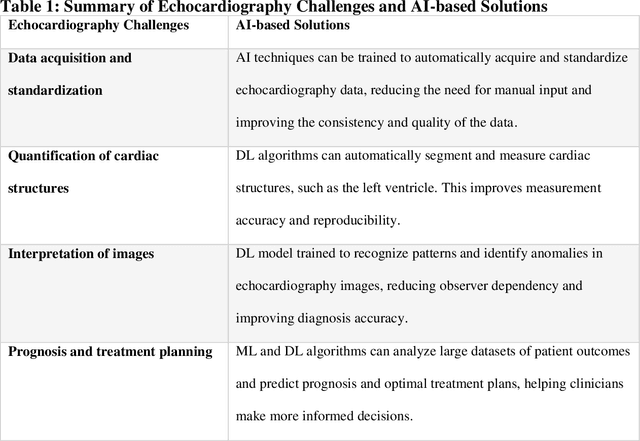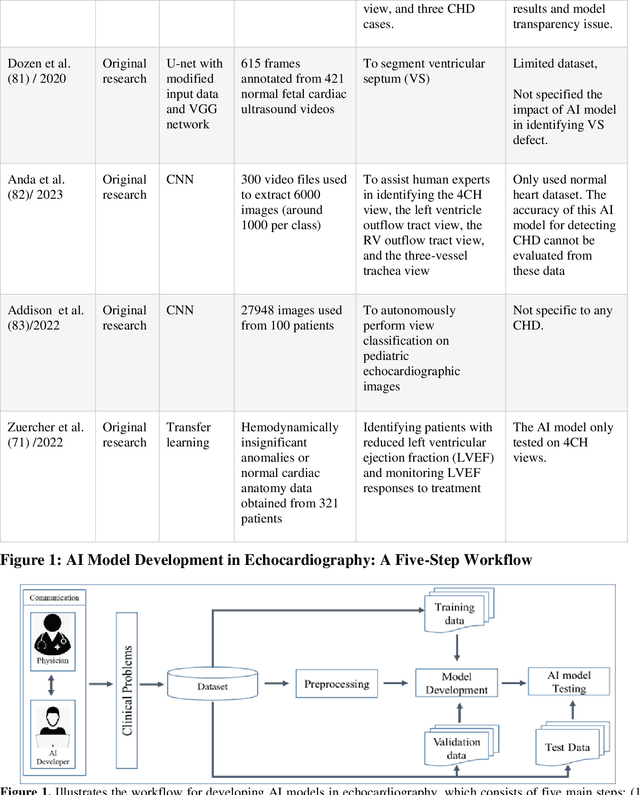Artificial Intelligence in Pediatric Echocardiography: Exploring Challenges, Opportunities, and Clinical Applications with Explainable AI and Federated Learning
Paper and Code
Nov 15, 2024



Pediatric heart diseases present a broad spectrum of congenital and acquired diseases. More complex congenital malformations require a differentiated and multimodal decision-making process, usually including echocardiography as a central imaging method. Artificial intelligence (AI) offers considerable promise for clinicians by facilitating automated interpretation of pediatric echocardiography data. However, adapting AI technologies for pediatric echocardiography analysis has challenges such as limited public data availability, data privacy, and AI model transparency. Recently, researchers have focused on disruptive technologies, such as federated learning (FL) and explainable AI (XAI), to improve automatic diagnostic and decision support workflows. This study offers a comprehensive overview of the limitations and opportunities of AI in pediatric echocardiography, emphasizing the synergistic workflow and role of XAI and FL, identifying research gaps, and exploring potential future developments. Additionally, three relevant clinical use cases demonstrate the functionality of XAI and FL with a focus on (i) view recognition, (ii) disease classification, (iii) segmentation of cardiac structures, and (iv) quantitative assessment of cardiac function.
 Add to Chrome
Add to Chrome Add to Firefox
Add to Firefox Add to Edge
Add to Edge